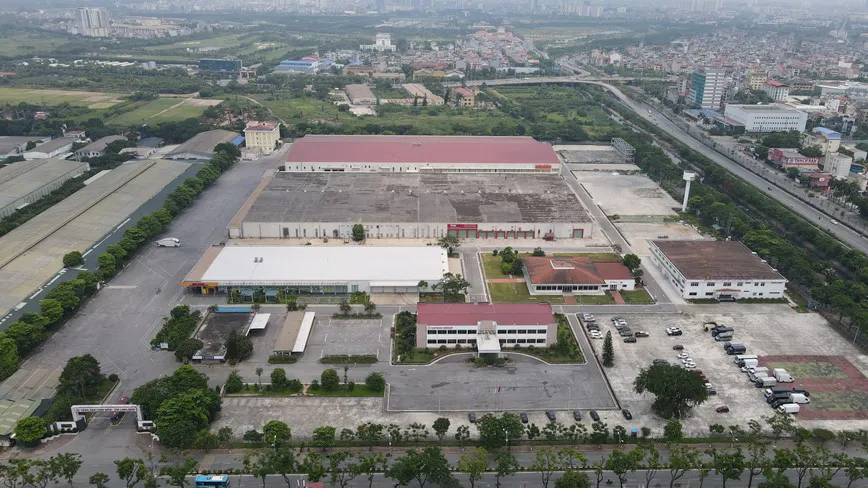Hanoi targets to become nation’s logistics hub
The plan aims to promote growth and increase the contribution of logistics services to the city's gross regional domestic product (GRDP).
Hanoi aims to develop a modern, integrated logistics infrastructure to facilitate the movement of commodities for export, import, transit, and domestic needs, and establish itself as a key regional and national logistics hub.
| Long Bien Inland Container Depot in Hanoi. Photo: The Hanoi Times |
The vision was mentioned in the capital’s latest plan to develop its logistics sector in 2025.
The plan aims to promote growth, increase the contribution of logistics services to the city's gross regional domestic product (GRDP), boost outsourcing rates, and reduce logistics costs to enhance product price competitiveness for businesses. This will support the development of traditional production and trade, exports, imports, and e-commerce. Efforts will also focus on expediting the initiation of logistics infrastructure projects by addressing challenges and improving inter-agency coordination, alongside attracting and facilitating investment in logistics infrastructure projects as per approved plans.
The city encourages logistics service enterprises to innovate and provide third-party logistics (3PL) and fourth-party logistics (4PL) services, with the long-term goal of advancing to fifth-party logistics (5PL) and e-logistics, leveraging the growth of e-commerce and modern supply chain management.
Additionally, Hanoi seeks to synchronize the development of logistics infrastructure with that of transportation and commercial service networks to support the movement of goods for export, import, transit, and domestic needs, positioning the city as a key logistics hub for the region and the nation.
To achieve these objectives, the municipal government has tasked the Department of Industry and Trade with attracting and promoting investment in logistics infrastructure projects as per authorized plans. The department will review and oversee the development of appropriately scaled logistics zones that connect collection hubs, storage facilities, and distribution centers. It will also organize training and awareness programs to enhance understanding of logistics among stakeholders.
The Department of Transportation will implement and propose updates to Hanoi's transport planning while expediting state-funded transportation infrastructure projects. It will focus on reducing traffic congestion, applying smart traffic management systems, and facilitating efficient road freight transport to minimize delivery times. The department will also enhance multimodal transport connections, integrate road, waterway, and rail systems, and provide transparent online information about transport services to help freight owners make decisions.
Meanwhile, the Hanoi Customs Department will strengthen the implementation of the national single-window mechanism for all export, import, and transit-related procedures, including those for persons and vehicles. Investments will be made in customs facilities, clearance sites, storage areas, and centralized inspection points to support logistics activities. The department will continue to advance electronic customs systems, develop digital customs models, and accelerate the clearance process of goods in transit and trade.
Currently, approximately 40% of goods from other provinces are transported through Hanoi. The city is also home to 10 active industrial parks, over 100 industrial clusters in various stages of development, and thousands of supermarkets, shopping centers, markets, and retail outlets, catering to more than 10 million residents.
Despite these advantages, Hanoi's logistics sector remains underdeveloped, according to economists. The city’s logistics infrastructure is fragmented, with small, isolated storage facilities and a lack of specialized warehouses such as cold and refrigerated storage. Inland container depots (ICDs) are limited in number and rely heavily on road transport, with minimal integration with rail or waterways. High logistics costs and persistent traffic congestion further reduce the competitiveness of businesses.
There are around 25,000 logistics enterprises in Hanoi, but they meet only about 25% of local demand. Additionally, foreign-invested enterprises handle 18% of the city's total export and import cargo, underscoring the reliance on external operators.











